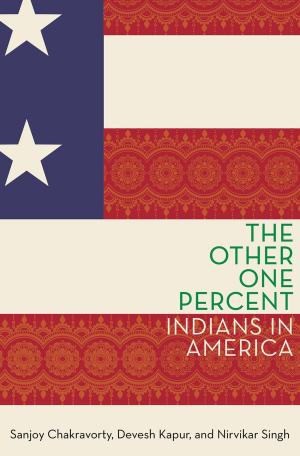Commitment and Cooperation on High Courts
A Cross-Country Examination of Institutional Constraints on Judges
Nonfiction, Reference & Language, Law, Comparative, Legal Profession, Constitutional| Author: | Andrew J. Green, Benjamin Alarie | ISBN: | 9780190466404 |
| Publisher: | Oxford University Press | Publication: | July 25, 2017 |
| Imprint: | Oxford University Press | Language: | English |
| Author: | Andrew J. Green, Benjamin Alarie |
| ISBN: | 9780190466404 |
| Publisher: | Oxford University Press |
| Publication: | July 25, 2017 |
| Imprint: | Oxford University Press |
| Language: | English |
Judicial decision-making may ideally be impartial, but in reality it is influenced by many different factors, including institutional context, ideological commitment, fellow justices on a panel, and personal preference. Empirical literature in this area increasingly analyzes this complex collection of factors in isolation, when a larger sample size of comparative institutional contexts can help assess the impact of the procedures, norms, and rules on key institutional decisions, such as how appeals are decided. Four basic institutional questions from a comparative perspective help address these studies regardless of institutional context or government framework. Who decides, or how is a justice appointed? How does an appeal reach the court; what processes occur? Who is before the court, or how do the characteristics of the litigants and third parties affect judicial decision-making? How does the court decide the appeal, or what institutional norms and strategic behaviors do the judges perform to obtain their preferred outcome? This book explains how the answers to these institutional questions largely determine the influence of political preferences of individual judges and the degree of cooperation among judges at a given point in time. The authors apply these four fundamental institutional questions to empirical work on the Supreme Courts of the US, UK, Canada, India, and the High Court of Australia. The ultimate purpose of this book is to promote a deeper understanding of how institutional differences affect judicial decision-making, using empirical studies of supreme courts in countries with similar basic structures but with sufficient differences to enable meaningful comparison.
Judicial decision-making may ideally be impartial, but in reality it is influenced by many different factors, including institutional context, ideological commitment, fellow justices on a panel, and personal preference. Empirical literature in this area increasingly analyzes this complex collection of factors in isolation, when a larger sample size of comparative institutional contexts can help assess the impact of the procedures, norms, and rules on key institutional decisions, such as how appeals are decided. Four basic institutional questions from a comparative perspective help address these studies regardless of institutional context or government framework. Who decides, or how is a justice appointed? How does an appeal reach the court; what processes occur? Who is before the court, or how do the characteristics of the litigants and third parties affect judicial decision-making? How does the court decide the appeal, or what institutional norms and strategic behaviors do the judges perform to obtain their preferred outcome? This book explains how the answers to these institutional questions largely determine the influence of political preferences of individual judges and the degree of cooperation among judges at a given point in time. The authors apply these four fundamental institutional questions to empirical work on the Supreme Courts of the US, UK, Canada, India, and the High Court of Australia. The ultimate purpose of this book is to promote a deeper understanding of how institutional differences affect judicial decision-making, using empirical studies of supreme courts in countries with similar basic structures but with sufficient differences to enable meaningful comparison.















